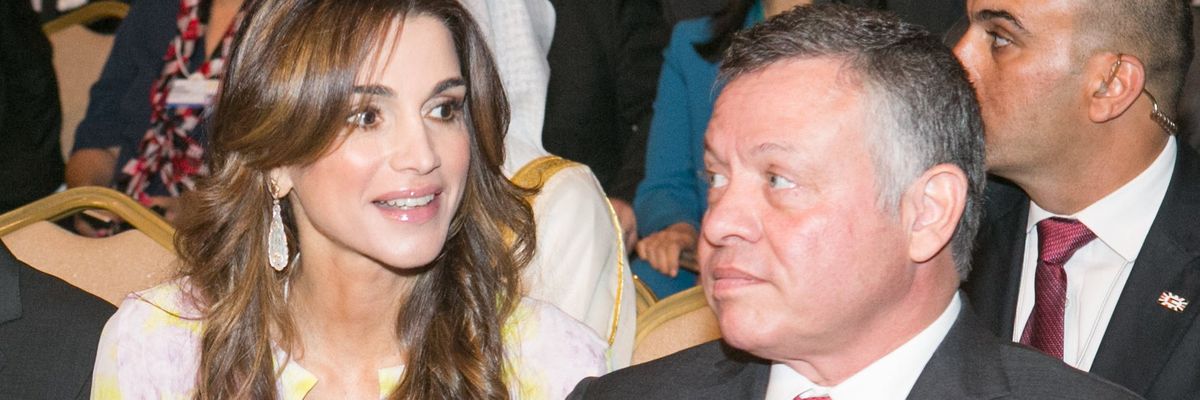According to the data leaked in the explosive Pandora Papers, King Abdullah II of Jordan has secretly purchased luxury homes in the U.S. and UK, the combined value of which exceed $100 million.
This might seem fairly normal for an Arab ruler, but Jordan differs from the wealthy Gulf monarchies. Jordan lacks oil reserves as well as adequate water resources, and approximately 16 percent of Jordan’s population lives in poverty. Jordan’s economy depends heavily on foreign aid, much of which Jordan receives to help support the millions of refugees who have fled from the successive conflicts that have convulsed the Middle East: Palestinians, Iraqis, and Syrians in particular. Due to the impecunity of the local population, the kings of Jordan have tended to avoid ostentatious displays of wealth that a well-fed Qatari or Emirati citizen might find less galling.
The revelations that King Abdullah has quietly amassed properties in Malibu, London, and Ascot — some of the most expensive real estate in the world — contradict his efforts to cultivate an image as a responsible and relatable leader. Abdullah, his wife Queen Rania, and their four children are frequently presented on social media as a normal family: Queen Rania’s Instagram page tends to highlight her charity work, as well as photos of her family in casual clothes. The more lavish aspects of the royals’ lives are eschewed in a manner that might bemuse an al-Saud or even a Windsor.
In addition to the need to avoid the appearance of overt wealth in the eyes of a strapped population, the careful image management likely reflects the fact that King Abdullah has struggled to fill the shoes of his father, King Hussein, who ruled Jordan from 1952 to 1999. Hussein navigated Jordan through many challenges, including two wars with Israel in 1967 and 1973, a brief civil war against the Palestinian Liberation Organization in 1970, and an eventual peace treaty with Israel that antagonized his people but earned him millions of dollars in annual U.S. military aid. King Hussein is remembered fondly in Jordan as a man of the people and a true Jordanian. In contrast, Abdullah resembles his British mother more than his popular father, and unlike the late Hussein, generally prefers to appear in military uniform rather than traditional Jordanian garb.
The Pandora Papers represent just the latest challenge for Jordan’s embattled king. COVID decimated Jordan’s lucrative tourist industry, and unemployment rates have spiked. In March, seven COVID patients died in a hospital in the city of Salt due to a lack of oxygen, spurring protests that the government was unable to provide something so basic, amid general frustration at the economic downturn.
In the midst of COVID pressures, April 2021 witnessed an alleged coup attempt that resulted in the house arrest of the king’s half-brother Hamzah, and the detention of two high profile figures close to the throne. Prince Hamzah, who was Crown Prince until replaced by his nephew, Abdullah’s now 27-year-old-son Hussein, sent a video that was broadcast by the BBC, where he chastised the Jordanian elite for corruption but did not specifically name Abdullah. In the video, Hamzah appeared in front of an image of his father, the late Hussein, whom he resembles, and stated that “Jordanians have lost hope.” However, following his house arrest, Hamzah has not made additional attempts to draw media attention.
Tellingly, Jordanian media, much of which is controlled by the Crown, has not reported on the exposé regarding the king’s foreign property holdings. Instead, according to Jordanian newspaper Al-Ghad, the king met with various sheikhs and dignitaries on Monday to say that there is “nothing to hide” and that “there is a campaign against Jordan,” perhaps alluding to allegations that Saudi Arabia had been involved in April’s sedition plot.
King Abdullah is only one of many national leaders and global elites to have had unflattering information exposed by the Pandora papers. The reports published by the International Consortium of Investigative Journalists reflect 2.94 terabytes of data (1 terabyte can store roughly 4.5 million eBooks of 200 pages each). The trove dwarfs the 2016 Panama Papers and 2017 Paradise Papers, which also divulged attempts by the rich and famous to evade taxes and, in the case of those like King Abdullah, avoid drawing the ire of his citizenry.
The United States remains Jordan’s largest source of foreign aid, followed by the World Bank, the EU, and various wealthy Gulf nations, which rely on Jordan to house refugees and prevent them from trying to enter Europe or the Gulf. Although the king may have misused some of the funds intended to support displaced populations, none of these countries are likely to reduce their aid money as a result of the data leak. However, Abdullah’s reputation in the eyes of his people, already battered, has suffered another blow.
















